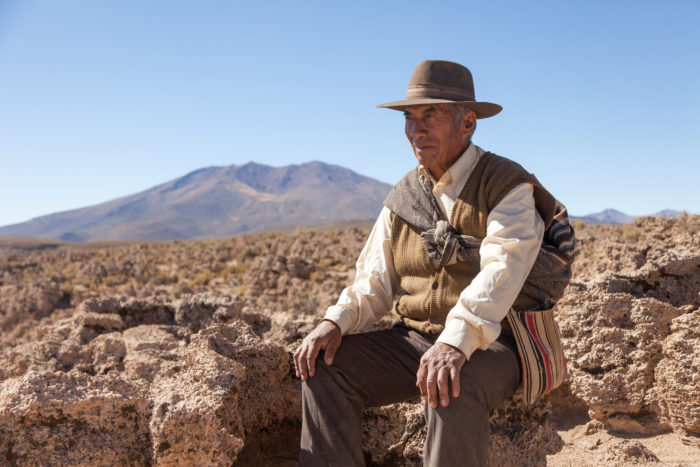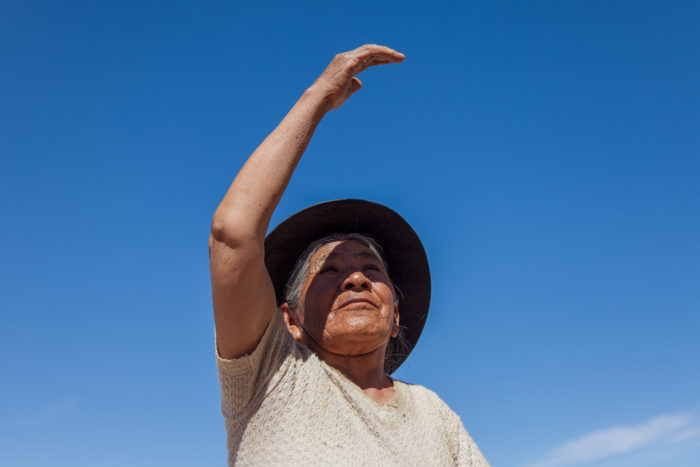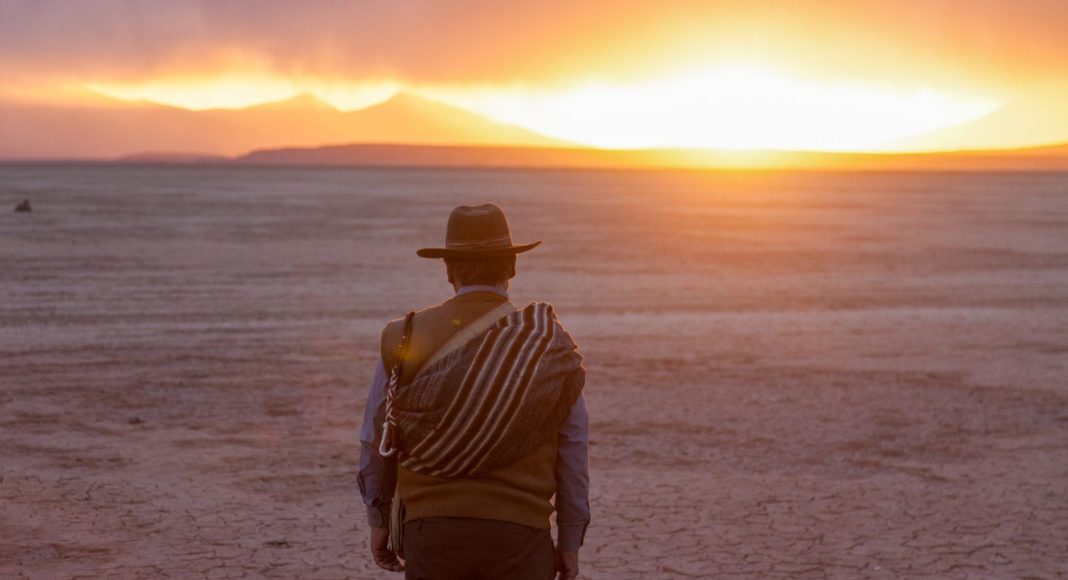Writer-director Alejandro Loayza Grisi’s debut film UTAMA pertinently revolves around the conflict between traditional cultures and extreme globalization and portrays how Andean ancestral beliefs are at odds with the Western conceptions of progress which are fuelling climate change.
Virginio and Sisa are an elderly Quechua couple who have never known anything other than the vast and arid plains of their Bolivian highlands. Their lives have followed the same routine for decades, herding llamas on their land. It is in this rural context that writer-director Alejandro Loayza Grisi’s debut film follows the couple in their plight to survive the perils of climate change. However, it’s not all doom and gloom in this film. On the contrary, Alejandro Loayza focuses on immersing us in the beauty and hope of Virginio and Sisa’s everyday life in the Andean mountains.

The couple’s way of life is disrupted after long waiting for the rains that sustain them and their culture. Their once seemingly simple lives become increasingly more complicated as the lack of rain and thus of water forces them to reflect on their sustainability in their homelands. They question migration for the first time in their lives after decades of living in the highlands, as everything around them starts to die out.
However, they receive an unexpected visit. It is Clever, their grandson, who has decided to spend some time away from the city. He brings a different perspective on life into their world and the three family members embark on a journey of change.
Alejandro Loayza’s first film is shot at a gloriously slow pace; every scene is a powerful immersion into the 21st-Century Andean world. Contrasting the arid landscapes, Virginio and Sisa’s llamas wear radiant pink ribbons on their ears and Virginio devotedly offers coloured stones to his wife. There is a compelling scene where the family dedicate offerings and a sacrifice to the Aymaran deities to ask for much-needed rain so that themselves, and their herds, can survive. This image might initially be dominated by distress to the Western gaze, but Loayza Grisi’s eye shows the hope held in these beliefs that in the Aymara world are crucial for survival.

The family’s and other local communities are located at more than 3,500 meters above sea level. Under a changing climate, these arid landscapes become much colder at night and much hotter during the days, challenging their practices of agriculture and farming. According to the director, this region is ‘one of the most exposed and most vulnerable territories to climate change on Earth’. This causes more and more families to abandon their towns to live in urban centres where they find new and different challenges, like language, and cultural barriers, racism and discrimination.
In recent years, British television has taken more of an interest in this often forgotten part of the world, producing programmes like Race Across the World Season 2; or most recently Simon Reeve’s South America. UTAMA’s premiere at the BFI London Film Festival and its release in British and Irish cinemas this month is another opportunity for UK viewers to learn about the Andes and the – overwhelmingly irreversible – effects of climate change on rural communities.
UTAMA pertinently revolves around the conflict between traditional cultures and extreme globalization and portrays how Andean ancestral beliefs are at odds with the Western conceptions of progress which are fuelling climate change. Virginio tells his grandson about the natural ‘signs’ that need to be learned in order to see one’s path in life; signs that a person can never detect living in an urban environment, uprooted from Mother Nature. In the end, Virginio, Sisa, and Clever show us that every time something departs from this life, something new is born.
Following its premiere at the BFI London Film Festival in October, UTAMA is released in UK and Irish cinemas 11 November.


